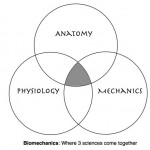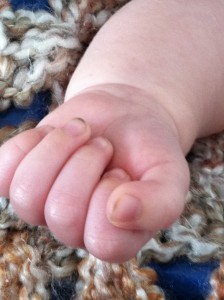I actually thought my book was done when I turned it in in January, but then came the first round of edits. And then the second round.
And then there was organizing the photos.
And realizing that I forgot to include a photo in the photo shoot, and then rescheduling the photo shoot.
And there were dirty diapers. And breastfeeding, and lots (and lots) of one-handed typing which isn’t as much fun as it sounds.
Today, I am supposed to finish the glossary. To prepare for doing the glossary, I thought I would do this instead:
And while I was at it, I thought I’d take this picture and play a little game called: GUESS THIS BODY PART.
Did anyone else get World Magazine as a kid and love the GUESS WHAT THIS IS photo game in the back?
So anyhow, it turns out that a glossary is kinda hard. Definitions are pretty easy, right? But then I tried to define the term compensatory mechanisms.
I came up with: Things we do to correct for other things that we do.
But that sounded like I was in third grade.
So I checked with Wikipedia who had this definition listed under the engineering term form compensation: Compensation is planning for side effects or other unintended issues in a design.
(Why bother doing anything as long as Wikipedia is there to do it for you??)
I like this definition as it applies to the human body. There are all sorts of things we do that were unintended and not accounted for in the human genome. What kind of things? Oh, how about: Driving, jogging, bicycling, purse carrying, shoe wearing, flying, computer viewing, book reading, sitting, using a toilet, under sleeping, over caffeinating, and blogging. Just to name a few.
And, all of these situations require your body to compensate, in some way, with its geometry (think alignment) and physiology. The ability to compensate, while an awesome one, is not without penalty.
When you are having any (and I mean ANY) type of health problem, create a list of all the things you are asking your body to do and ask yourself -- How many of these things are natural to the human being?
Your ailments will start to be less of a mystery when you look at yourself as an engineer looks at a machine. The remedy is usually in not what to do, but what to stop doing.
(How about now? Can you tell what the body part is?)
So now it’s been about 70 minutes since I started working on this one definition. This is what I came up with:
Compensatory Mechanism: An action taken by the body to continue physiological function despite an alteration in natural function.
I like it. And I should be done with the rest of the glossary by the time I am 94 years old at this rate.
Ok, the dirty fingernails give it away, right? How is it that a two-month old is able to garden behind my back??
What habits do you have that are requiring your body to work differently than it was designed?


